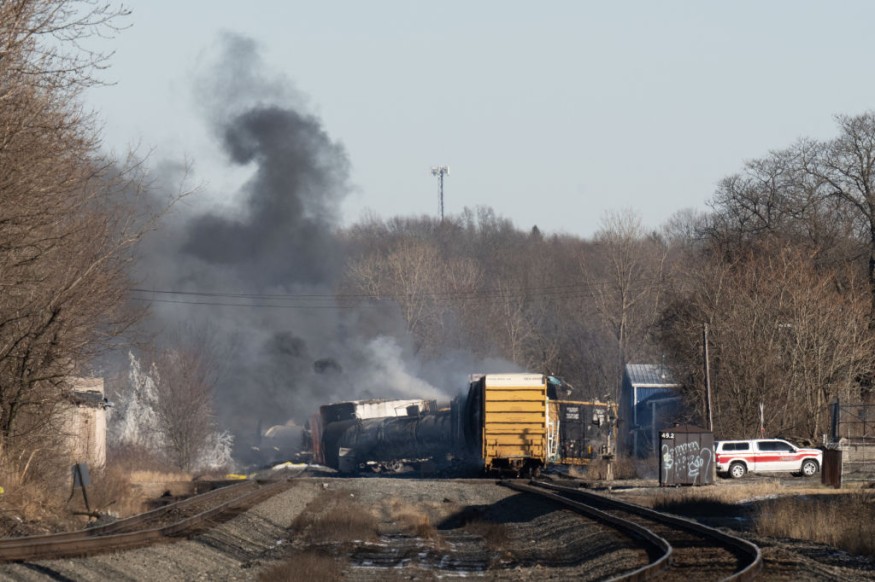The Ohio train derailment in early February caused the release of toxic chemicals in East Palestine, a village in the state's northeastern Columbiana County near the Ohio-Pennsylvania border.
Local reports said that dead animals and sickness complaints amongst affected residents were observed 10 days after toxic train caught a massive fire and led to evacuation orders.
Ohio Train Derailment

Insider news reported that a number of fish, chickens, and foxes are amongst the animals that either got sick or died from the catastrophic Ohio chemical train derailment. The information came a week later after February 3 when dead fish and chickens were found in their coop.
The media agency adds that the derailment prompted local officials to carry out a "controlled release" of chemicals onboard the 20 out of the 50 train cars. Some of the crashed were carrying the following chemicals, according to the Independent:
- Vinyl chloride
- Butyl acrylate
- Ethylhexyl acrylate
- Ethylene glycol monobutyl ether
The chemical leak was released into the air, surface soils, and water, the Independent emphasized. There were no reported human fatalities from the controlled explosion and derailment. However, reports revealed it caused an ecological disaster and widespread health hazards, ranging from mild to severe symptoms.
In contrast, other sources say the Ohio toxic train derailment was an accident which occurred when the freight train was traveling to Conway, Pennsylvania, from Madison, Illinois, as part of a cargo transport.
Toxic Chemicals
Toxic chemicals are known for causing drastic repercussions to the environment, including waterways and other places in the biosphere serving as natural habitats for both land and marine animals. Experts assert that a spill or leakage of these hazardous substances can have long-lasting impacts.
In April 2010, the largest marine oil spill in history known as the "Deepwater Horizon oil spill" or "Gulf of Mexico oil spill" occurred off the coast of the United States which killed 11 people and injured 17 others due to a fire and explosion in the offshore drilling rig operated by BP and Transocean.
Experts say crude oil from the Deepwater Horizon disaster contained chemicals, which were highly likely responsible to deaths of many marine animals, including dolphins, and destruction of marine ecosystems, according to the Center for Biological Diversity.
In May 2020, a styrene gas leak accident occurred in the outskirts of Visakhapatnam in the state of Andhra Pradesh killed 32 animals and caused almost 200 animals were treated for symptoms of breathlessness. Officially known as the "Vizag gas leak," the incident transpired at the LG Polymers chemical plant and impacted villages within a 3-kilometer radius, according to the website Statista.
In February 2020, a freight train carrying ethanol in Kentucky caught fire and caused a chemical leak into a river following a landslide.
In 2005, a related derailment in South Carolina released chlorine gases, killing nine people and injuring over 250 others.
© 2025 NatureWorldNews.com All rights reserved. Do not reproduce without permission.





